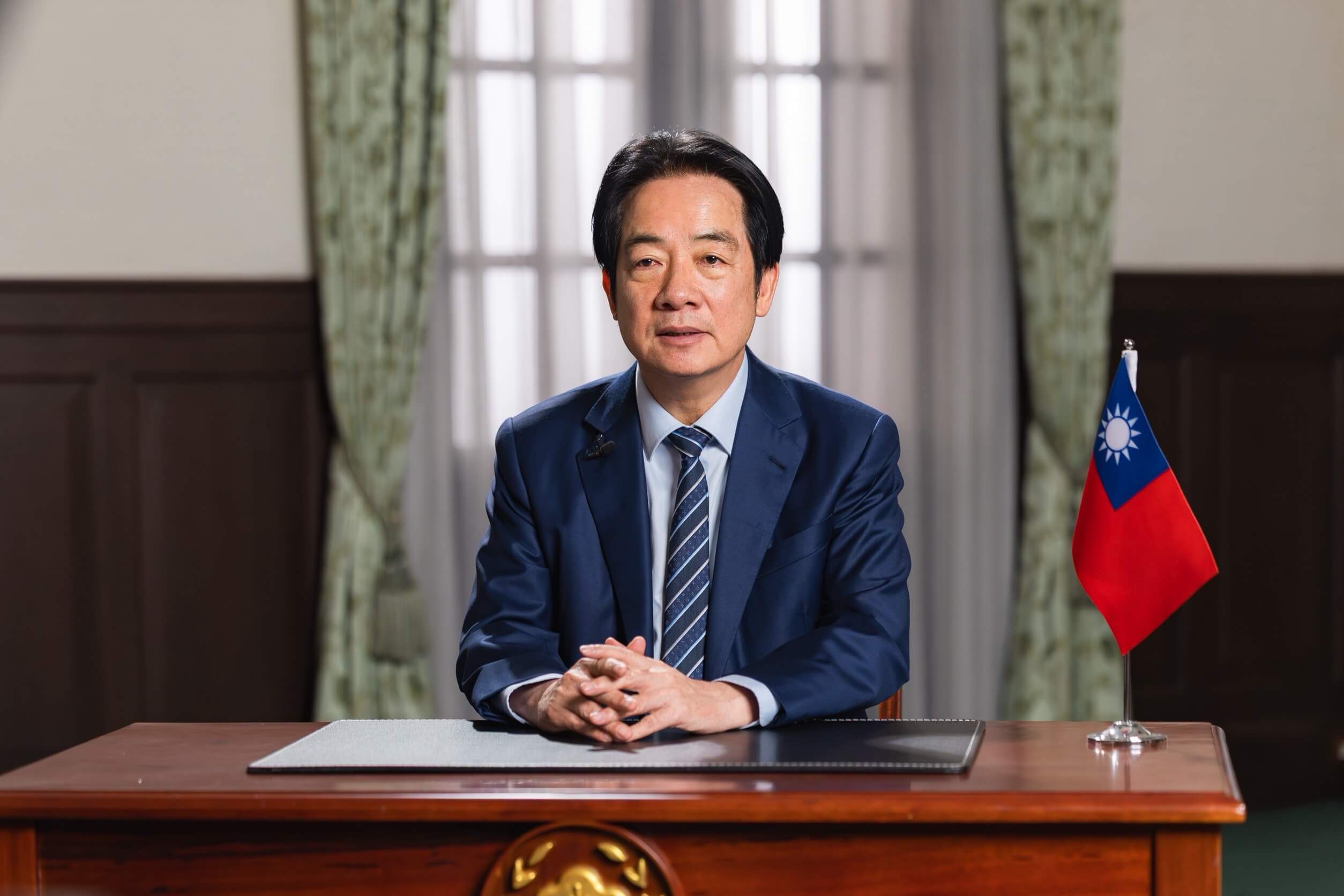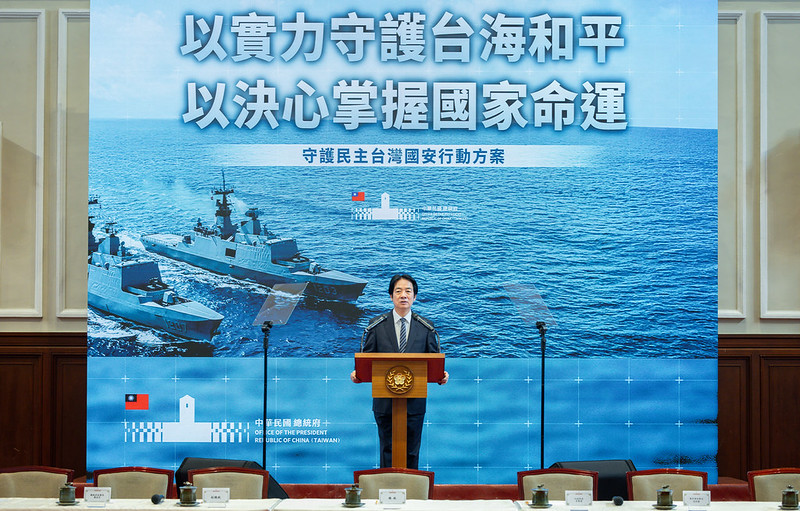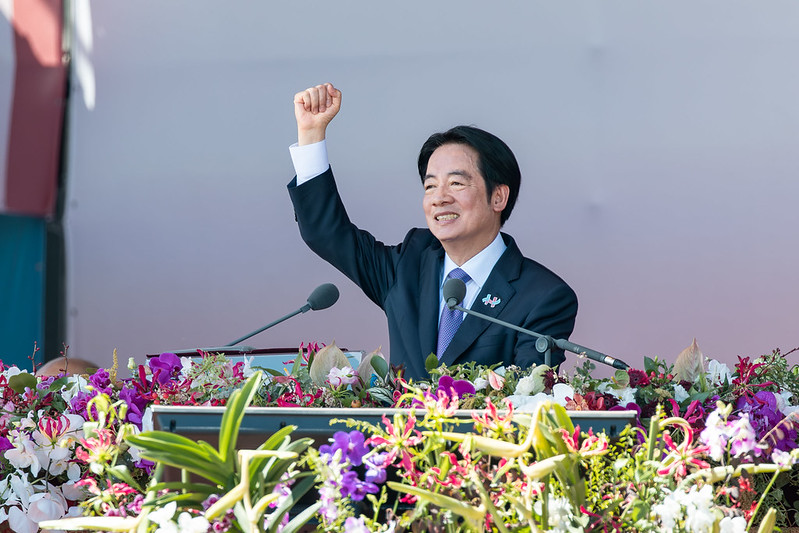News & activities
 News releases
News releases
2016-12-09
President Tsai's remarks at 2016 IPA Asian Regional Meeting
On the afternoon of December 9, President Tsai Ing-wen delivered a speech at the opening ceremony of the 2016 Asian Regional Meeting of the International Psychogeriatric Association (IPA).
A translation of the president's remarks follows:
Minister of Health and Welfare Lin Tzou-yien (林奏延);
Legislators Lin Ching-yi (林靜儀) and Chiu Tai-yuan (邱泰源);
IPA President Raimundo Mateos;
President Lai Te-jen (賴德仁) of the Taiwan Society of Geriatric Psychiatry;
Leading experts from around the world;
Honorable Guests and Friends:
Greetings to you all!
The IPA is the world's leading organization working to improve the mental health of older people.
Among its members are the world's top experts on dementia, depression, bipolar disorder, and geriatric metal health. On behalf of our government and people, I welcome all of you to Taiwan for the IPA Asian Regional Meeting.
I also want to thank the Taiwan Society of Geriatric Psychiatry. Since its founding 11 years ago, the society has made considerable contributions to the mental health of our senior population.
This is Taiwan's first time hosting an IPA regional meeting, which shows that the international community recognizes the achievements Taiwan has made in geriatric mental health.
This meeting will also bring the latest knowledge and technology to Taiwan, and strengthen our response to the challenges arising from population aging.
According to projections, Taiwan will become an "aged society" by 2018, and a "super-aged society" only seven years later in 2025. So our population is aging at an incredible speed.
This is why my government is taking immediate action to build a comprehensive long-term care system. We have launched a ten-year long-term care 2.0 plan, with three core elements:
First, we are expanding the types and reach of services in response to demand. We are adding, for instance, care for dementia patients and in-home medical service. This will give more people access to care, and also create employment opportunities.
Second, we are building an integrated "community-based" service model. The goal is to construct an intricate network of services that weaves together three types of service points: "integrated community service centers", "multi-service daycare centers", and "neighborhood care stations". This will enable people to access care right where they live, in the most convenient fashion possible.
Third, in order to offer the most suitable services to each community and locality, we must integrate the capabilities and resources of the central and local governments.
Our goal is to put in place a long-term care policy for the aging society. This policy will integrate healthcare, long-term care, and preventive care resources, and ensure that people can "find, see, access and afford" care services.
Of course, our agencies will continue to evaluate the full set of factors in their policy-making, including regulations, culture, gender, health status and social support.
We will work relentlessly to protect the rights of older people and create for them the most comfortable environment.
This regional meeting is a wonderful opportunity to exchange experiences in preventing suicide, treating mental illness, and providing integrated care to the elderly. We will also hear how the IPA has promoted successful aging elsewhere in the world.
These are all valuable references for Taiwan. I hope my presence today has signaled unmistakably our determination to take care of our seniors, and to build a truly aging-friendly society.
We have never held back from sharing our democratic experience with the world, and now, as we develop a long-term care system for the future, we are eager to link up with international efforts and share our successes.
This would be yet another way for Taiwan to contribute to the international community, and a most worthwhile goal to strive for.
Thank you all.
A translation of the president's remarks follows:
Minister of Health and Welfare Lin Tzou-yien (林奏延);
Legislators Lin Ching-yi (林靜儀) and Chiu Tai-yuan (邱泰源);
IPA President Raimundo Mateos;
President Lai Te-jen (賴德仁) of the Taiwan Society of Geriatric Psychiatry;
Leading experts from around the world;
Honorable Guests and Friends:
Greetings to you all!
The IPA is the world's leading organization working to improve the mental health of older people.
Among its members are the world's top experts on dementia, depression, bipolar disorder, and geriatric metal health. On behalf of our government and people, I welcome all of you to Taiwan for the IPA Asian Regional Meeting.
I also want to thank the Taiwan Society of Geriatric Psychiatry. Since its founding 11 years ago, the society has made considerable contributions to the mental health of our senior population.
This is Taiwan's first time hosting an IPA regional meeting, which shows that the international community recognizes the achievements Taiwan has made in geriatric mental health.
This meeting will also bring the latest knowledge and technology to Taiwan, and strengthen our response to the challenges arising from population aging.
According to projections, Taiwan will become an "aged society" by 2018, and a "super-aged society" only seven years later in 2025. So our population is aging at an incredible speed.
This is why my government is taking immediate action to build a comprehensive long-term care system. We have launched a ten-year long-term care 2.0 plan, with three core elements:
First, we are expanding the types and reach of services in response to demand. We are adding, for instance, care for dementia patients and in-home medical service. This will give more people access to care, and also create employment opportunities.
Second, we are building an integrated "community-based" service model. The goal is to construct an intricate network of services that weaves together three types of service points: "integrated community service centers", "multi-service daycare centers", and "neighborhood care stations". This will enable people to access care right where they live, in the most convenient fashion possible.
Third, in order to offer the most suitable services to each community and locality, we must integrate the capabilities and resources of the central and local governments.
Our goal is to put in place a long-term care policy for the aging society. This policy will integrate healthcare, long-term care, and preventive care resources, and ensure that people can "find, see, access and afford" care services.
Of course, our agencies will continue to evaluate the full set of factors in their policy-making, including regulations, culture, gender, health status and social support.
We will work relentlessly to protect the rights of older people and create for them the most comfortable environment.
This regional meeting is a wonderful opportunity to exchange experiences in preventing suicide, treating mental illness, and providing integrated care to the elderly. We will also hear how the IPA has promoted successful aging elsewhere in the world.
These are all valuable references for Taiwan. I hope my presence today has signaled unmistakably our determination to take care of our seniors, and to build a truly aging-friendly society.
We have never held back from sharing our democratic experience with the world, and now, as we develop a long-term care system for the future, we are eager to link up with international efforts and share our successes.
This would be yet another way for Taiwan to contribute to the international community, and a most worthwhile goal to strive for.
Thank you all.
Related News

2019-06-23
President Tsai attends opening ceremony for 27th Pan-Pacific & Southeast Asia Women's Association international conference
President Tsai Ing-wen attended the opening ceremony for the 27th Pan-Pacific & Southeast Asia Women's Association (PPSEAWA) interna...

2026-01-01
President Lai delivers 2026 New Year’s Address
On the morning of January 1, President Lai Ching-te delivered his 2026 New Year’s Address, titled “Island of Resilience – ...

2025-12-15
President Lai delivers recorded address following national policy discussion with government branch leaders
On December 15, President Lai Ching-te held a discussion on national policy with government branch leaders, following which he delivered a r...

2025-12-04
President Lai interviewed by The New York Times DealBook Summit
In a recent interview via videoconference with The New York Times for its DealBook Summit, President Lai Ching-te responded to questions fro...

2025-11-26
President Lai holds press conference on national security action plans to safeguard democratic Taiwan
On the morning of November 26, President Lai Ching-te convened a high-level national security meeting regarding action plans to safeguard de...



